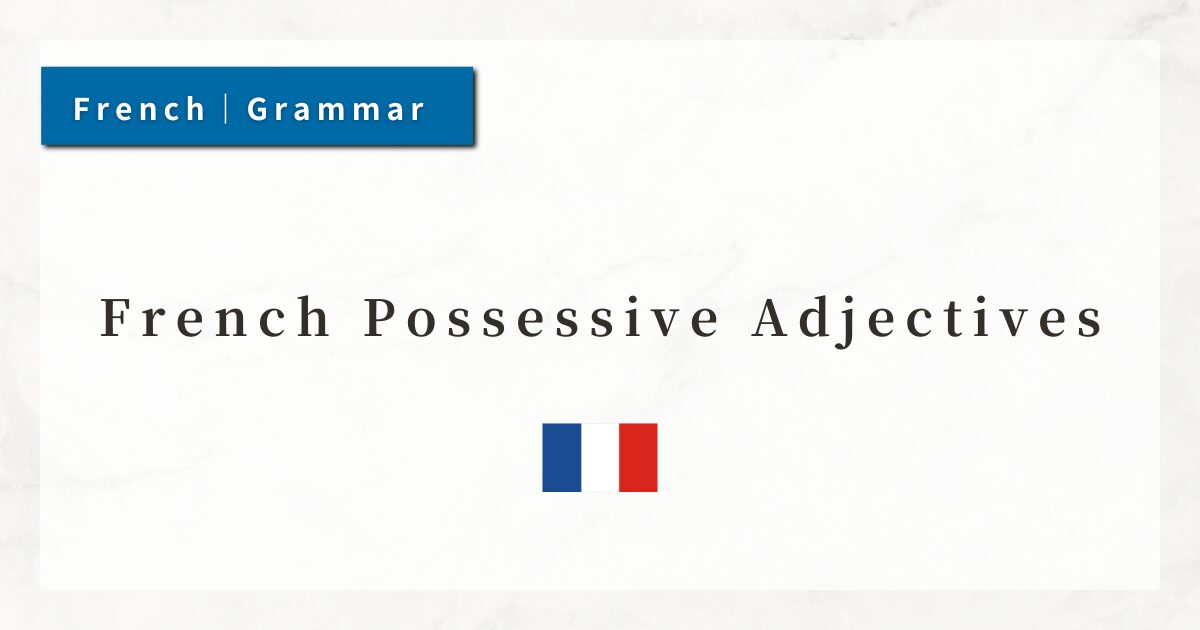#12 French Possessive Adjectives | Usage and Example Sentences

In French, possessive adjectives are used to indicate ownership of a noun.
English also uses words like my, your, his, her, but in French the form of the possessive adjective changes depending on the gender (masculine/feminine) and number (singular/plural) of the noun.
In this lesson, I will explain the basic rules of French possessive adjectives and how to use them naturally.
1. What Are Possessive Adjectives?
A possessive adjective is placed in front of a noun to indicate to whom it belongs.
They correspond to English my, your, his, her, etc. However, unlike English, French requires agreement with the gender and number of the noun being modified.
| Person | Masculine Singular | Feminine Singular | Plural |
|---|---|---|---|
| je (I) | mon | ma | mes |
| tu (you, singular) | ton | ta | tes |
| il / elle (he / she) | son | sa | ses |
| nous (we) | notre | notre | nos |
| vous (you, plural or formal) | votre | votre | vos |
| ils / elles (they, m./f.) | leur | leur | leurs |
2. Agreement with the Noun’s Gender and Number
Unlike English, French possessive adjectives do not reflect the owner’s gender. Instead, they change according to the gender and number of the noun they modify.
- son livre
(his/her book)
→ livre is masculine, so son is used regardless of whether the owner is male or female. - sa maison
(his/her house)
→ maison is feminine, so sa is used.
3. Feminine Nouns Beginning with a Vowel or Silent “h”
When a feminine noun begins with a vowel or a silent h, the forms mon, ton, son are used instead of ma, ta, sa to make pronunciation smoother.
- mon amie
(my [female] friend)
→ amie is feminine but begins with a vowel, so mon is used instead of ma amie. - ton histoire
(your story)
→ histoire is feminine but begins with a silent h, so ton is used instead of ta histoire.
4. Plural Nouns
For plural nouns, the plural possessive forms are always used, regardless of gender.
- mes livres
(my books) - vos enfants
(your children)
5. Possessive Adjectives Must Always Accompany a Noun
In French, possessive adjectives can never stand alone. They must always be used with a noun.
- ✗ mon
→ Incorrect: meaningless alone. - ✓ mon livre
Used without a noun, possessive adjectives do not form a valid expression.
6. Summary
- In French, possessive adjectives agree with the gender and number of the noun, not the gender of the owner.
- Feminine nouns beginning with a vowel or silent h take mon, ton, son to ensure smooth pronunciation.
- Plural nouns always require the plural forms (mes, tes, ses, nos, vos, leurs).
- Possessive adjectives must always be used together with a noun and cannot stand alone.




